Carol Moseley Braun, Former U.S. Senator & U.S. Ambassador to New Zealand
By Jane Wallace
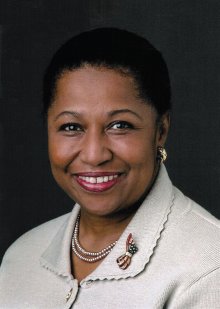
“There are a lot of kids who, with just a
little support, could make a tremendous
contribution if a diagnosis is used to
tailor their education…”
This is the first time Ambassador Carol Moseley Braun, the first African American woman elected to the senate, has ever talked about her dyslexia. She’s speaking out now to help de-stigmatize a brain difference that’s coming between kids and their dreams. Although she remains wary that any label, especially put on kids of color, can be used as an excuse for abuse.
“There are a lot of kids who, with just a little support could make a tremendous contribution if a diagnosis is used to tailor their education… the danger is it could be used to derail and dump kids who are already over- marginalized.”
As a kid, Carol always knew she learned differently. It just didn’t get in her way until third grade. At the tender age of 8, she was bussed clear across Chicago, desegregating a previously all white public school. She was promptly placed in the “dumb row.” The proud little girl went quickly from horrified to “pissed off.”
Determined to right being obviously wronged every day in the classroom real estate, she came up with the “ruler trick”. Carol used her ruler under words and numbers to help her focus on what jumped on the page. By second semester young Carol had moved up: second chair, smart row.
For the rest of grade school Carol Moseley worked hard to hang on to her seat in the smart section. She understood all the larger concepts, and she kept her smaller struggles to herself. Young Carol would re-read sentences and re-do arithmetic calculations. Her brain transposed letters and numbers and sometimes filled in wrong endings. Her spatial relationships were a disaster.
She hopes kids of color in America no longer have to present themselves as “perfect” to succeed. She believes all kids with dyslexia need to be prepared to protect their own progress in an education system that can still misunderstand them completely.
As she says now, “I could never fly an airplane. I can’t reconcile up and down with right and left. Or left, (as my son says) and my other left.”
By high school, Carol’s biggest obstacle to learning was a lame Chicago public school. Dyslexia came in second. The work wasn’t challenging and she just didn’t do her best with books. She held on to information better by hearing, seeing, feeling and experiencing it. Hungry for knowledge, she played hooky—hitting the Chicago museums—until she got caught. She still graduated class Valedictorian.
She would go on to the University of Illinois, the University of Chicago Law School, and (among other things); the U.S. Senate, (as the first African American woman, ever), and an appointment as Ambassador to New Zealand, (also first African American woman, ever). In 2005, she founded her own organic food company in Chicago. She now serves as a visiting professor of political science at Northwestern University.
All in all, she believes her dyslexia gave more than it got. At 71, she has dealt with enough duds to come to see thinking differently as high complement.
“I see connections other people don’t. I can see around corners… I am a repository for bits of knowledge—so much so that I have to avoid being an insufferable know-it-all,” she says, laughing.
Her dyslexia taught Carol Moseley Braun discipline, the expectation of working harder, and perhaps most importantly, it helped her find her courage.
She hopes kids of color in America no longer have to present themselves as “perfect” to succeed. She believes all kids with dyslexia need to be prepared to protect their own progress in an education system that can still misunderstand them completely.
“We need to encourage these kids to believe in themselves, because if they are taught to, they will. And it is the kids who are, ultimately, the ones who are going to have to make their way.”
Related
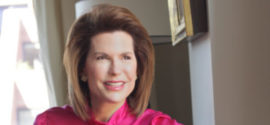
Nancy Brinker, Founder of Susan G. Komen for the Cure
Nancy Brinker is perhaps best known as the founder of the Susan G. Komen Breast Cancer Foundation, now known as Susan G. Komen for the Cure. But that is only one of her many accomplishments. Brinker has also served as U.S. ambassador to Hungary and as White House Chief of Protocol and is currently the Goodwill Ambassador for Cancer Control for the United Nations World Health Organization.
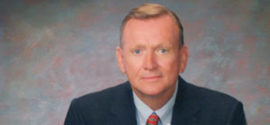
Tom Cavanaugh, Entrepreneur
Tom Cavanaugh was 71 before he saw his true reflection—not in a mirror—but in a movie. There he was, at 17, in a scene showing a high school student completely lost looking for his hallway locker, and then spinning the combination lock repeatedly, without result.
Read More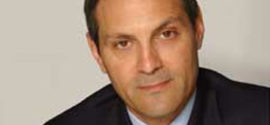
Ari Emanuel, Co-Chief Executive of William Morris Endeavor Entertainment
Emanuel learned at an early age to be aggressive and stand up for himself. Raised in a family where education was a high priority, he had to read the newspaper every day to keep up with current events and defend his political opinions each night at the family dinner table. This posed no problem for his brother Rahm, former Obama chief of staff and now Chicago mayor, and Ezekiel, a breast oncologist and head of the Department of Bioethics at the Clinical Center of the National Institutes of Health. But for Emanuel, diagnosed in the third grade with dyslexia and ADHD, it was a monumental challenge. “I was on the ceiling,” he says. “The Ritalin helped, but reading was an enormous task.”
Read More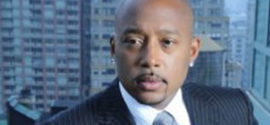
Daymond John, Entrepreneur
These days, Daymond John might be best known as one of the five savvy business executives (known as the “sharks”) who quickly mull over whether to invest their own money in the business ideas that budding entrepreneurs anxiously illustrate on the ABC hit television show Shark Tank.
Read More